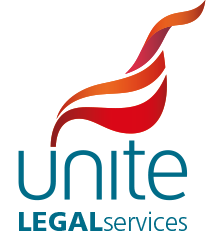Richard Arthur, of Thompsons Solicitors, one of Unite’s panel firms, reflects on the blacklisting High Court victory one year on.
Today (May 6) marks the one year anniversary of Unite’s historic victory in the High Court in the blacklisting group litigation. 256 Unite members from across the UK received a total of £10.5 million, with the construction companies making an apology in open court.
The case concerned the activities of an organisation known as The Consulting Association, which arose out of the Economic League, an establishment that had been involved in clandestine operations since the end of the First World War. When the Economic League’s activities were uncovered, household names in the construction industry set up The Consulting Association in 1993, which operated out of an office in Droitwich. It purchased the Economic League’s lists of workers regarded as troublesome, and, over the following years, added names and information, including personal information, as to why they were not regarded as suitable for employment. The construction companies paid the salary of The Consulting Association’s principal officer, Ian Kerr, with McAlpine providing £10,000 towards the start-up costs. The member companies each took it in turn to nominate a chairperson of The Consulting Association.
The company groups involved included Sir Robert McAlpine, Balfour Beatty, Carillion, Costain, Kier, Laing O’Rourke, Skanska and Vinci.
The Consulting Association’s database consisted of a list of names, National Insurance numbers and reference cards holding more detailed information. The company from which the information on the database was sourced was referred to by a numeric code. The database was operated in secret. Workers had no way of knowing that their names were included, and no way to challenge what was recorded about them.
Member companies recruiting workers for new projects would fax a list of names of prospective workers, which Mr Kerr would then check against The Consulting Association’s databases. Answers would then be given by telephone to the companies’ designated main contacts who would then make their recruitment decisions.
The Consulting Association was uncovered in February 2009. The Information Commissioners Office (ICO) executed a search warrant and seized some, but not all, of the information held by The Consulting Association. Mr Kerr alone was prosecuted by the ICO for failing to register as a data controller under the Data Protection Act. His £5,000 fine, and legal costs, were paid by the companies involved.
The claims brought by Unite members were for defamation, breach of privacy and confidence rights, breach of the Data Protection Act and unlawful means conspiracy. The claims were brought not only against the companies, but also against their directors, who were chairpersons of The Consulting Association, including Cullum McAlpine. In October 2016, the main Defendant companies admitted that the communication of information on message cards was defamatory and that privacy rights had been breached. The settlement was reached a matter of days before the start of a three-month trial.
Although today marks the one year anniversary of Unite’s immense victory in the High Court, its campaign against blacklisting very much continues.
Unite is representing a further 60 members who came forward after the closing date for the group litigation in a second wave of High Court claims, including for unlawful conspiracy. Unite continues to call for a full public inquiry into blacklisting and to advocate for companies known to have taken part in the blacklisting scandal to be excluded from the award of public procurement contracts, under procurement laws. In response to pressure from Unite concerning its actions, the ICO has announced a Call for Evidence into blacklisting to take place in 2018.
Blacklisted workers find it much more difficult to get work. They struggle to support themselves and their families, with the consequent strains on families and health that inevitably brings. But this isn’t a thing of the past. It is very much in evidence today. Unite remains steadfast in its campaign to bring justice to the victims of blacklisting.









